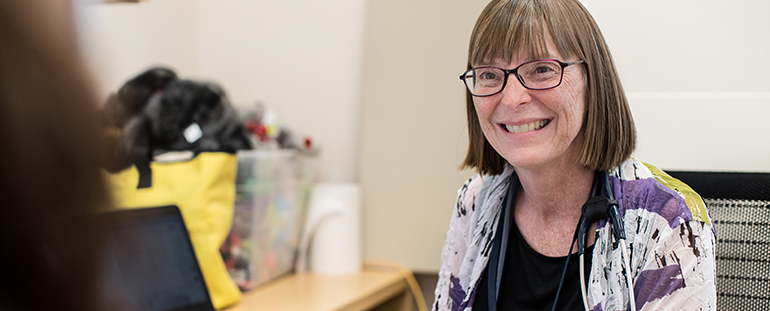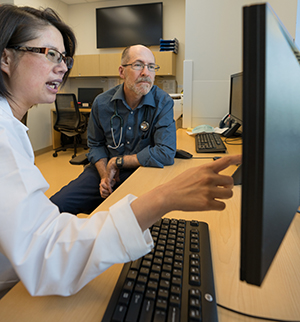
The University of Michigan and C.S. Mott Children’s Hospital are able to support and mentor trainees in a variety of career paths. While some fellows enter training with a strong sense of a research driven path, others may desire academic training geared toward quality improvement, medical education, and public policy. Research focused trainees will have access to all phases of medical research including, basic science, translational, clinical, and health services.
Clinical research training opportunities both within and outside the Pediatric Nephrology division. Pediatric Nephrology faculty are involved in multicenter large-scale research and are enthusiastic about fellow participation. The Kidney Epidemiology and Cost Center provides for unique opportunities in outcomes research.
Additionally, there is opportunity for advanced degrees. Fellows may take part in multiple programs including:
- Clinical Research Design and Statistical Analysis
- Health and Health Care Research
- Masters of Science in Clinical Research
Basic science research opportunities abound in numerous labs throughout the Medical School including in the Internal Medicine Nephrology division. As part of the University of Michigan community, fellows have opportunities for mentorship and projects across the entire institution. University of Michigan holds the proud position as the #2 institution in the country for NIH funding. Because of this, there are abundant opportunities for diverse and fellow driven research projects.

In order to be eligible to sit for the Pediatric Nephrology Subspecialty Board Examination, fellows must participate in scholarly activity that results in the production of a written work product (most commonly, a peer-reviewed publication or a manuscript in preparation). A research project and mentor will be identified during the first year of training. A fellow’s progress during the research years will be monitored by his/her Scholarly Oversight Committee. Fellows will work with the program director to identify mentors and members of their Scholarly Oversight Committee during the first year.
Competitively awarded intramural grants are available to support research for trainees. To gain experience in grant writing, fellows will apply for intramural or extramural grants to support their research. Research seminars are held regularly to foster critical appraisal and to review ongoing research. Participation in regional and national scientific meetings is encouraged and supported.*(though at present due to COVID, there are limited in-person meetings and limitations on travel support by the division).



